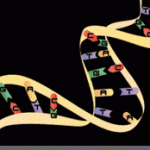Corruption: Process of law failed on so many accounts in the trial against the two operators of The Pirate Bay, its media spokesperson, and a fourth unrelated person that it’s hard to get a bird’s-eye view. This trial was characterized by first deciding that the operations were criminal, then finding somebody to punish, and finally trying to determine a criminal act they could be held accountable to. In any civilized country where process of law works, the exact reverse order is followed.
First, we know that the United States ordered the shutdown and trial of The Pirate Bay. This was confirmed by Swedish Public Television, showing how the then-Swedish Minister of Justice Thomas Bodström had been in contact with the US State Department through intermediaries.
Then, in the raid on May 31, 2006, the Police emptied an entire server hall and didn’t just seize The Pirate Bay. In an apparent deliberate attempt to create a public fear of association, almost 200 mom-and-pop stores got their servers seized in collateral damage. The copyright lobby’s reps were quoted as saying, “you should be careful with where you place your servers”. (Later, some constitutionally protected servers – registered news publications – were actually given back, but not before a judge had intervened hard. Other servers, such as The Pirate Bureau’s discussion forum, remained in seizure.)
To further create a fear of association, the police harassed the site’s legal counsel by forcibly sampling and registering their DNA for any and all future use.
The lead investigator with the Police for the case, Jim Keyzer, was hired by Warner Brothers, one of the plaintiffs, before finishing the investigation and while still on notice with the Police, and was already hired by Warner when conducting the hearings and wrapping up the investigation. This is a textbook bribe, which is why you will find many Swedish blogs referring to “the bribed policeman Jim Keyzer” (den mutade polisen Jim Keyzer). The Swedish then-Minister of Justice Beatrice Ask commented on the case: “it’s positive that our policemen are hired from outside the Police Authority. That indicates they’re attractive”.
The presiding judge in the District Court, Tomas Norström, picked the case to himself. This is not supposed to be possible, but he argued that his court department (which specialized in copyright monopoly cases) should have the case, and he just happened to be the only available judge there. Norström was a signed-up member in the Swedish Association For Copyright, just like all the plaintiffs were, as well as a board member in The Swedish Association for Protection of Intellectual Property, giving him a political as well as a possible social interest in the outcome of the case and making him textbook corrupt. (This is why you see a lot of Swedish blogs discuss“the corrupt judge Tomas Norström”.)
In the investigation, the two operators of The Pirate Bay were initially indicted. For some reason, its media spokesperson Peter Sunde, which had openly talked back to the copyright industry, was indicted too despite having done nothing but talking, and a fourth completely unrelated person was indicted more or less because he was rich and could be ruined as a warning to others, to create yet more fear of association. (This would not be the official reason, but the obvious reason to everybody else.)
During the trial, the defense pointed out that it had not been proven that any crime had been committed at all which the four were on trial for aiding and abetting. (Sharing culture is fully legal in many countries, and the prosecution hadn’t cared to show that a criminal act had been committed – only that sharing of culture had happened somewhere, but not that it was illegal in that location. If it had happened in Spain at the time, for instance, it would have been fully legal.) The prosecution agreed with the fact that no crime had been proven to have been committed in the first place, and then, that quite crucial fact magically vanished from the end verdict, where they were found guilty of aiding and abetting that non-shown crime.
And the media spokesperson, Peter Sunde? He was convicted for part in operating The Pirate Bay based on a load balancer he had placed in a server rack, a box that had not had a single wire attached to it in The Pirate Bay’s server hall, and which was configured for something completely different than The Pirate Bay. Documentation of this configuration had gone completely missing from the investigation where everything else was meticulously documented.
The judges in the Appeals Court denied a retrial in the District Court based on the charges of a biased judge. Those judges had been part of the same pro-copyright political organization as Tomas Norström, and didn’t see any bias.
Nobody paid much attention to the appeals trial in the Appeals Court, as the landmark case was expected to go to the Supreme Court. It was the middle act in a three-act play. Still, in the Appeals Court, not one but two of the judges had a background from the same kind of pro-copyright lobby organizations as the District Court’s Norström. They confirmed the District Court’s verdict of guilty of aiding and abetting the crime that was never shown to have taken place.
Then, the Supreme Court declined to hear the case. At that point, the four people went into exile.
This is just a small subset of the things that are… remarkable… about the trial against the two operators of The Pirate Bay, its media spokesperson, and a fourth unrelated person.
Sweden has a justice system unworthy of a banana republic. When the establishment is threatened, or when the US of A calls for Sweden to jump, all rights and due process go out the window.
![flattr this!]()




















